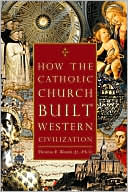From the Princeton Principles:
In recent years, marriage has weakened, with serious negative consequences for society as a whole. Four developments are especially troubling: divorce, illegitimacy, cohabitation, and same-sex marriage...
Marriage protects children, men and women, and the common good. The health of marriage is particularly important in a free society, which depends upon citizens to govern their private lives and rear their children responsibly, so as to limit the scope, size, and power of the state. The nation's retreat from marriage has been particularly consequential for our society's most vulnerable communities: minorities and the poor pay a disproportionately heavy price when marriage declines in their communities. Marriage also offers men and women as spouses a good they can have in no other way: a mutual and complete giving of the self. Thus, marriage understood as the enduring union of husband and wife is both a good in itself and also advances the public interest. ..
We affirm the following ten principles that summarize the value of marriage- a choice that most people want to make, and that society should endorse and support.
Ten Principles on Marriage and the Public Good
- Marriage is a personal union, intended for the whole of life, of husband and wife.
- Marriage is a profound human good, elevating and perfecting our social and sexual nature.
- Ordinarily, both men and women who marry are better off as a result.
- Marriage protects and promotes the wellbeing of children.
- Marriage sustains civil society and promotes the common good.
- Marriage is a wealth-creating institution, increasing human and social capital.
- When marriage weakens, the equality gap widens, as children suffer from the disadvantages of growing up in homes without committed mothers and fathers.
- A functioning marriage culture serves to protect political liberty and foster limited government.
- The laws that govern marriage matter significantly.
- "Civil marriage" and "religious marriage" cannot be rigidly or completely divorced from one another.


No comments:
Post a Comment